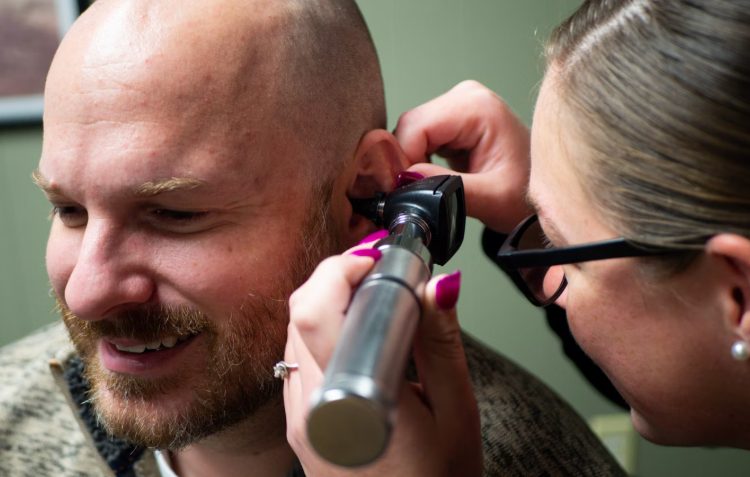
@ShahidNShah


Hearing health is advancing faster than ever, with new technologies transforming the way professionals diagnose and manage hearing conditions. What was once limited to basic amplification has evolved into a spectrum of sophisticated tools and techniques that enhance auditory perception and improve quality of life. In recent years, the field of audiology has seen tremendous momentum, ushering in a future where hearing loss may no longer be an inevitable part of aging or noise exposure.
As researchers continue to refine approaches and develop innovative solutions, individuals now have access to a variety of modern options for hearing loss treatment that extend well beyond traditional hearing aids.
One of the most critical shifts in audiology is the move toward earlier and more accurate diagnosis. Modern diagnostic tools like auditory brainstem response (ABR) and otoacoustic emissions (OAE) testing are enabling clinicians to detect hearing issues in infants and at-risk populations before symptoms become noticeable. Machine learning algorithms are also being integrated into diagnostic software, offering faster and more nuanced interpretations of hearing tests. This helps audiologists tailor treatment strategies from the outset, preventing deterioration and preserving residual hearing.
Hearing aids have come a long way from their bulky predecessors. Today’s smart devices are compact, discreet, and powered by artificial intelligence. AI-driven hearing aids can automatically adjust to environmental sounds, suppress background noise, enhance speech recognition, and even connect to smartphones or TVs via Bluetooth. Some models now offer self-learning features, adapting to user preferences over time to deliver a more personalized experience. These innovations allow users to stay connected and engaged without constantly fiddling with manual controls.
For individuals with profound hearing loss who don’t benefit from conventional aids, cochlear implants continue to be a game-changing solution. These surgically implanted devices bypass damaged parts of the inner ear and stimulate the auditory nerve directly. The latest generation of implants offers improved sound clarity, wider frequency range perception, and enhanced speech understanding in noisy environments. Paired with wireless accessories and mobile apps, users enjoy greater freedom and flexibility than ever before.
One of the most promising frontiers in hearing science is regenerative medicine. Researchers are exploring ways to regenerate damaged hair cells within the cochlea—the tiny sensory receptors essential for hearing. Several preclinical studies have demonstrated that certain proteins or gene therapies may trigger these cells to regrow. If successful in human trials, this could lead to partial or full restoration of natural hearing. Companies in the biotech space are already running early-stage trials, raising hopes for non-invasive biological alternatives in the future.
With new regulations coming into play, particularly in North America, over-the-counter (OTC) hearing devices are becoming increasingly available. These FDA-cleared options cater to adults with mild to moderate hearing loss, offering an affordable and accessible solution without the need for a prescription. While not a replacement for clinical care, OTC devices are democratizing hearing support for millions who may have avoided treatment due to cost or stigma. They also encourage proactive hearing health by making entry-level solutions more approachable.
Teleaudiology is revolutionizing how patients receive care, particularly in remote or underserved communities. Virtual consultations, remote hearing assessments, and cloud-based programming allow audiologists to support patients without the need for in-person visits. For individuals with mobility challenges or those in rural areas, this level of accessibility is crucial. In addition, ongoing monitoring and fine-tuning of hearing aids can now happen from the comfort of a patient’s home, improving outcomes and satisfaction rates.
Some of the most ambitious innovations involve brain-computer interfaces (BCIs) and the concept of training the brain to adapt to hearing loss. Researchers are developing wearable and implantable devices that use neural signals to decode sound in real time. These technologies aim to bypass the ear altogether, sending auditory data directly to the brain’s processing centres. Parallel to this, cognitive auditory training programs are being developed to harness neuroplasticity—the brain’s ability to rewire itself—to improve comprehension and reduce listening fatigue.
In line with trends toward customization, modern hearing solutions now include apps and software that allow users to fine-tune their listening environments. Whether attending a concert, dining in a noisy restaurant, or walking in the park, users can adjust settings on the fly to create personalized soundscapes. Some apps even use geolocation to recall preferences based on location, offering a seamless transition between environments. This control enhances user autonomy and promotes long-term satisfaction with treatment.
The convergence of medical innovation, digital technology, and personalized care is redefining what it means to live with hearing loss. Where once there were limited options, individuals today can choose from a growing range of treatments tailored to their lifestyle, severity of hearing loss, and communication needs. As these advancements continue to evolve, the future of hearing health looks not only more inclusive but also more empowering—restoring confidence, connection, and control to those navigating auditory challenges.

Introduction Prior authorization is a critical part of healthcare administration, but for health plans and pharmacy benefit managers, it often becomes a source of friction both operationally and …
Posted Apr 29, 2025 Health Technology Payment Models
Connecting innovation decision makers to authoritative information, institutions, people and insights.
Medigy accurately delivers healthcare and technology information, news and insight from around the world.
Medigy surfaces the world's best crowdsourced health tech offerings with social interactions and peer reviews.
© 2026 Netspective Foundation, Inc. All Rights Reserved.
Built on Mar 4, 2026 at 1:56pm